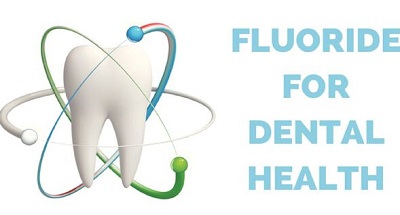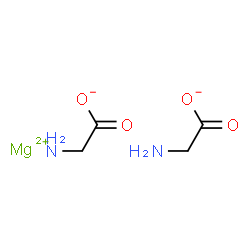Acai berries have been touted as a superfood with a long list of health benefits. From weight loss to anti-aging properties, acai has been marketed as a cure-all for a variety of health issues. But is there any truth to this hype? In this post, we will examine the research behind acai and its potential health benefits. We’ll explore its antioxidant content, its ability to lower cholesterol, and whether it can actually help with weight loss. We’ll also discuss the best ways to incorporate acai into your diet and whether it’s worth the extra expense compared to other fruits. Let’s take a closer look at acai and unlock the truth behind its superfood status.
Shop Amazon and Save on Acai1. Introduction: The rise of acai and its reputation as a superfood
In recent years, acai has emerged as a popular health food, touted for its numerous health benefits and superfood status. Originating from the Amazon rainforest in Brazil, this small purple fruit has garnered attention for its rich nutritional profile and antioxidant properties. Its rise to fame can be attributed to its association with improved heart health, weight loss, and enhanced immune function.
The reputation of acai as a superfood stems from its impressive nutrient content. Packed with essential vitamins, minerals, and antioxidants, it has become a sought-after addition to smoothie bowls, energy bars, and health supplements. Acai berries are particularly renowned for their high levels of anthocyanins, a type of antioxidant that gives the fruit its vibrant color and offers potential health benefits.
Beyond its antioxidant properties, acai is also believed to promote cardiovascular health. Studies have shown that the anthocyanins in acai can help reduce oxidative stress and inflammation, both of which are key factors in the development of heart disease. Additionally, acai contains heart-healthy fats, such as omega-3 and omega-6 fatty acids, which can contribute to lower cholesterol levels and improved heart function.
Weight loss is another area where acai has gained attention. Its high fiber content can contribute to feelings of fullness and aid in weight management. Additionally, the antioxidants in acai may help boost metabolism, supporting a healthy weight loss journey.
Furthermore, acai has been associated with immune-boosting properties. Its potent antioxidants can help protect the body against free radicals and strengthen the immune system’s response to infections and diseases.
However, despite the growing popularity and claims surrounding acai, it is essential to approach its health benefits with a dose of skepticism. While acai can certainly be a valuable addition to a balanced diet, it is not a magical cure-all. It is crucial to maintain a well-rounded and varied approach to nutrition, incorporating a range of fruits, vegetables, whole grains, and lean proteins to reap the full spectrum of health benefits.
In the following sections, we will delve deeper into the scientific evidence supporting the health claims associated with acai, exploring its potential effects on heart health, weight management, immune function, and more. By examining the available research, we aim to provide a comprehensive analysis of whether acai is truly a superfood or simply a product of clever marketing hype. So, let’s separate fact from fiction and uncover the truth about acai’s health benefits.
2. Understanding the nutritional profile of acai
To truly evaluate whether acai is a superfood or just a hyped-up trend, it is crucial to understand its nutritional profile. Acai berries are small, dark purple fruits that grow on acai palm trees in the rainforests of South America. These berries are packed with a variety of nutrients that contribute to their reputation as a nutritional powerhouse.
First and foremost, acai berries are rich in antioxidants. These powerful compounds help protect our cells from damage caused by harmful molecules called free radicals. In fact, acai berries have one of the highest antioxidant levels among all fruits, surpassing even popular choices like blueberries and strawberries. This makes them an excellent choice for promoting overall health and fighting against oxidative stress.
Additionally, acai berries are a good source of fiber. Fiber is essential for maintaining healthy digestion and promoting regular bowel movements. It can also help control blood sugar levels, reduce cholesterol levels, and aid in weight loss by promoting feelings of fullness.
Furthermore, acai berries contain a favorable amount of healthy fats, particularly monounsaturated fats, which are known for their heart-protective properties. These fats help maintain optimal cholesterol levels and reduce the risk of cardiovascular diseases.
Acai berries also offer a respectable amount of essential vitamins and minerals. They are particularly high in vitamin C, which supports the immune system, promotes collagen production, and acts as an antioxidant in the body. Additionally, acai berries provide small amounts of vitamins A, E, and K, as well as minerals like potassium, calcium, and magnesium.
While acai berries do offer an impressive nutritional profile, it is important to note that they are not a magical cure-all. Incorporating them into a balanced diet along with other nutrient-dense foods can certainly contribute to overall health and well-being. However, it is crucial to maintain a holistic approach to nutrition and not solely rely on acai berries for all your nutritional needs.
In conclusion, understanding the nutritional benefits of acai berries is essential in determining whether they are truly a superfood or simply a product of hype. Their high antioxidant content, fiber, healthy fats, and essential vitamins and minerals make them a valuable addition to a healthy diet. However, it is important to approach acai berries as part of a well-rounded nutritional plan rather than a standalone solution for optimal health.
3. The potential health benefits of acai
Acai, the small purple berry native to the rainforests of South America, has gained quite a reputation as a superfood in recent years. But what exactly are the potential health benefits of acai?
First and foremost, acai berries are known for their high antioxidant content. Antioxidants play a crucial role in neutralizing harmful free radicals in the body, protecting cells from damage, and potentially reducing the risk of chronic diseases such as heart disease and cancer. Acai berries have been found to have higher antioxidant levels compared to other berries like blueberries and strawberries, making them a powerful addition to any diet.
Additionally, acai berries are rich in fiber, which is essential for maintaining a healthy digestive system. A diet high in fiber can promote regular bowel movements, prevent constipation, and contribute to a healthy weight management. The fiber content in acai berries can also help to stabilize blood sugar levels and reduce the risk of developing type 2 diabetes.
Another potential health benefit of acai is its anti-inflammatory properties. Chronic inflammation is believed to be a contributing factor to many diseases, including arthritis, cardiovascular disease, and certain types of cancer. Acai berries contain compounds called anthocyanins, which have been shown to possess anti-inflammatory effects and may help to reduce inflammation in the body.
Furthermore, acai berries are a good source of vitamins and minerals, including vitamin C, vitamin E, and potassium. These nutrients are essential for supporting overall health and well-being, boosting the immune system, and promoting healthy skin.
While research on the specific health benefits of acai is still ongoing, there is promising evidence to suggest that incorporating this superfood into your diet can have a positive impact on your health. However, it’s important to note that acai alone cannot compensate for an unhealthy lifestyle or poor dietary choices. It should be consumed as part of a balanced diet rich in fruits, vegetables, whole grains, and lean proteins.
In conclusion, while acai may have been hyped up as a superfood, it does offer potential health benefits due to its antioxidant content, fiber, anti-inflammatory properties, and nutrient profile. Adding acai berries to your diet can be a delicious and nutritious way to support your overall health and well-being.
4. Examining the scientific evidence behind acai’s health claims
When it comes to superfoods, acai has garnered significant attention in recent years. With claims that it can boost energy, promote weight loss, and improve overall health, it’s no wonder that many consider it a miracle berry. However, before jumping on the acai bandwagon, it’s essential to examine the scientific evidence behind these health claims.
Numerous studies have explored the potential health benefits of acai, particularly its high antioxidant content. Antioxidants are compounds that help protect the body against damage caused by harmful free radicals. Acai berries are packed with antioxidants, including anthocyanins, which give them their deep purple color.
Research suggests that acai’s antioxidant properties may contribute to reducing inflammation, supporting brain health, and boosting the immune system. Some studies have also shown that acai can improve cholesterol levels and reduce oxidative stress, which is linked to various chronic diseases.
However, it’s important to note that much of the scientific research on acai’s health benefits has been conducted in test tubes or animals, with limited studies involving human subjects. While these preliminary findings are promising, more research is needed to fully understand how acai impacts human health.
Additionally, it’s worth mentioning that acai is not a magical cure-all. Its health benefits are best achieved when incorporated into a well-balanced diet and a healthy lifestyle. Relying solely on acai supplements or products may not yield the desired results.
In conclusion, while acai does show potential health benefits, it’s crucial to approach the claims surrounding this superfood with a critical eye. The scientific evidence supporting acai’s health claims is promising but still limited. Incorporating acai into your diet as part of a varied and nutritious eating plan may contribute to overall well-being, but it should not be seen as a substitute for a healthy lifestyle.
5. Acai vs. other superfoods: How does it compare?
When it comes to superfoods, acai is often hailed as a nutritional powerhouse. But how does it stack up against other popular superfoods? Let’s take a closer look.
One of the key factors that sets acai apart from other superfoods is its impressive antioxidant content. Acai berries are rich in anthocyanins, which give them their deep purple color and powerful antioxidant properties. In fact, acai has been found to have higher antioxidant levels compared to other well-known superfoods like blueberries and cranberries.
Another notable aspect of acai is its high fiber content. Fiber is essential for a healthy digestive system and can help regulate blood sugar levels and cholesterol. Acai berries are particularly rich in dietary fiber, making them a great choice for those looking to support their overall gut health.
In terms of essential nutrients, acai is also a good source of vitamins A, C, and E, as well as minerals like potassium, calcium, and magnesium. These nutrients are important for a wide range of bodily functions, including immune support, skin health, and bone strength.
While acai certainly has its own unique benefits, it’s worth noting that no single superfood can provide all the necessary nutrients for optimal health. Variety is key when it comes to a well-rounded diet, so incorporating a variety of superfoods, including acai, can help ensure you’re getting a wide spectrum of essential vitamins, minerals, and antioxidants.
Ultimately, whether acai is a superfood or simply a product of hype depends on how it fits into your overall diet and lifestyle. While it offers significant health benefits, it’s important to approach it as part of a balanced and varied approach to nutrition. So, if you’re looking to add acai to your diet, do so in conjunction with other nutrient-dense foods to reap the maximum benefits.
6. Potential side effects or risks associated with consuming acai
While acai berries are often touted as a superfood packed with health benefits, it’s important to consider any potential side effects or risks associated with consuming them. While the majority of people can enjoy acai without experiencing any adverse effects, it’s always wise to exercise caution and be aware of potential risks.
One potential side effect of consuming acai berries is an allergic reaction. Some individuals may be allergic to acai or other fruits in the same family, such as blueberries or cranberries. Symptoms of an allergic reaction may include itching, swelling, hives, or difficulty breathing. If you have a known allergy to berries or have experienced allergic reactions in the past, it’s advisable to consult with a healthcare professional before incorporating acai into your diet.
Another consideration is the potential for interactions with certain medications. Acai berries contain compounds that may interfere with the metabolism of certain drugs, particularly those broken down by the liver. If you are taking any prescription medications, it’s important to discuss the potential interactions with your healthcare provider to ensure there are no negative effects.
Additionally, while acai berries are generally safe to consume, it’s important to be mindful of portion sizes. Acai products, such as juices or supplements, may be high in calories and sugar. Consuming large quantities of acai or products containing acai on a regular basis may contribute to weight gain or negatively impact blood sugar levels in individuals with diabetes or pre-existing health conditions.
As with any dietary change or supplement, it’s always recommended to listen to your body and pay attention to any changes or reactions. If you experience any unusual symptoms or concerns after consuming acai, it’s best to seek medical advice.
In conclusion, while acai berries offer numerous potential health benefits, it’s essential to be aware of potential side effects, particularly for individuals with allergies or those taking medications. Moderation, awareness of portion sizes, and consultation with a healthcare professional can help ensure a safe and beneficial experience when incorporating acai into your diet.
7. Incorporating acai into a balanced and healthy diet
Incorporating acai into a balanced and healthy diet can be a great way to enjoy its potential health benefits. While acai has gained popularity as a superfood, it’s important to remember that no single food can magically transform your health. However, when included as part of a well-rounded diet, acai can contribute to an overall healthy lifestyle.
One simple way to incorporate acai into your diet is by adding it to smoothies or bowls. Acai berries are commonly sold in frozen puree form, making them easy to blend with other fruits, vegetables, and a liquid of your choice. This can create a delicious and nutritious smoothie packed with antioxidants and essential nutrients.
Another option is to sprinkle acai powder onto your breakfast foods, such as oatmeal or yogurt. Acai powder is made by freeze-drying the berries and grinding them into a fine powder. This versatile ingredient can also be used in baking or as a topping for desserts.
Additionally, acai can be enjoyed as a refreshing snack on its own. You can purchase freeze-dried acai berries, which provide a crunchy texture and concentrated flavor. These make for a convenient and portable snack option, perfect for on-the-go or as a mid-afternoon pick-me-up.
While incorporating acai into your diet, it’s crucial to maintain a balanced approach. Remember to prioritize a variety of fruits, vegetables, whole grains, lean proteins, and healthy fats in your meals. Acai should be seen as a complement to a well-rounded diet, rather than a magic solution.
Ultimately, the health benefits of acai can be unlocked when it’s part of a holistic approach to nutrition. So, enjoy acai in moderation and alongside other nutrient-dense foods to support your overall well-being.
8. Tips for buying and consuming acai products
When it comes to buying and consuming acai products, there are a few tips that can help you make the most of this superfood and avoid any potential pitfalls.
Firstly, it’s important to prioritize quality when purchasing acai products. Look for reputable brands that source their acai from reliable suppliers. Organic and sustainably sourced acai is always a good choice, as it ensures that you’re getting a product free from harmful chemicals and produced in an environmentally conscious manner.
Another tip is to check the ingredient list. Some acai products may contain added sugars, fillers, or artificial flavors. Opt for products with minimal ingredients and no added sugars to enjoy the true health benefits of acai without any unnecessary additives.
It’s also worth considering the form in which you consume acai. Acai berries are typically available as frozen puree, powdered supplements, or dried berries. Each form has its own advantages and can be used in various ways. Frozen puree is great for smoothies and desserts, while powdered supplements can be easily added to smoothies, yogurt, or baked goods. Dried acai berries make a convenient and nutritious snack on their own.
When incorporating acai into your diet, it’s important to remember that it should be part of a balanced and varied eating plan. While acai is rich in antioxidants and other beneficial nutrients, it’s not a magical cure-all. Pair it with a diverse range of fruits, vegetables, whole grains, lean proteins, and healthy fats for optimal health benefits.
Lastly, it’s worth mentioning that acai products can be quite expensive. Consider your budget and choose products that fit within your means. Remember, there are plenty of other affordable and equally nutritious superfoods available, so don’t feel pressured to solely rely on acai.
By following these tips, you can confidently navigate the world of acai products and unlock its potential health benefits without falling into any superfood hype.
9. The importance of moderation and overall dietary patterns
When it comes to unlocking the health benefits of acai, moderation and overall dietary patterns play a crucial role. While acai berries are often hailed as a superfood due to their high antioxidant content and potential health benefits, it’s important to remember that no single food can provide all the nutrients our bodies need.
Rather than solely relying on acai as a magical solution, it is essential to maintain a balanced and varied diet that includes a wide range of nutrient-rich foods. Incorporating acai into a well-rounded eating pattern can contribute to overall health and well-being.
Moderation is key when it comes to incorporating acai into your diet. While it’s tempting to consume large amounts of this nutritious fruit, it’s important to remember that excessive intake of any food, even a superfood, can lead to imbalances and potential negative effects.
Instead, consider incorporating acai into your diet alongside other fruits, vegetables, whole grains, lean proteins, and healthy fats. This ensures that you are getting a diverse range of essential nutrients and antioxidants that support overall health.
Additionally, focusing on overall dietary patterns is crucial. A healthy diet is not just about individual foods, but the overall combination of foods consumed. Aim for a diet that is rich in whole, unprocessed foods and limits the intake of added sugars, unhealthy fats, and highly processed foods.
Remember, there is no one-size-fits-all approach to nutrition. The key is to find a balance that works for you, incorporating a variety of nutrient-dense foods, including acai, in moderation, and maintaining a healthy overall dietary pattern. By doing so, you can unlock the potential health benefits of acai while enjoying a well-rounded approach to nutrition.
10. Conclusion: Separating the hype from the reality of acai’s health benefits
After exploring the various health claims surrounding acai, it is crucial to separate the hype from the reality when it comes to this so-called superfood. While acai berries do indeed possess numerous beneficial properties, it is essential to approach them with a balanced perspective.
First and foremost, acai berries are undeniably rich in antioxidants, particularly anthocyanins. These compounds have been linked to potential cardiovascular benefits, such as reducing inflammation and improving blood flow. Additionally, the high fiber content of acai can promote digestive health and aid in weight management.
However, it is important to remember that no single food can miraculously cure all ailments or guarantee optimal health. Acai should be viewed as part of a well-rounded and diverse diet, rather than a magical solution. It is crucial to consume a variety of fruits, vegetables, whole grains, and lean proteins to ensure a comprehensive range of nutrients and health benefits.
Furthermore, while acai berries may offer unique advantages, they are not the only source of antioxidants and fiber. Many other fruits and vegetables, such as blueberries, strawberries, and spinach, also contain high levels of these beneficial compounds. Therefore, it is always recommended to incorporate a wide range of colorful and nutrient-rich foods into your daily diet.
In conclusion, acai berries do possess notable health benefits, primarily due to their antioxidant and fiber content. However, it is vital to approach the hype surrounding this superfood with caution and maintain a balanced perspective. Incorporating acai into a well-rounded diet, alongside a variety of other nutritious foods, can contribute to overall health and well-being. So, enjoy acai as part of a delicious and diverse diet, but remember that there is no one-size-fits-all solution to optimal health.
We hope you found our blog post on the health benefits of acai informative and thought-provoking. Acai has gained popularity in recent years as a superfood, but it’s important to separate fact from fiction. While acai does offer several health benefits due to its high antioxidant content and potential anti-inflammatory properties, it is not a magical cure-all. Incorporating acai into a balanced and varied diet can certainly contribute to overall health and well-being. Remember to always consult with a healthcare professional before making significant dietary changes or relying solely on any one food. Stay informed, make informed choices, and enjoy the journey towards a healthier lifestyle.
——————————




